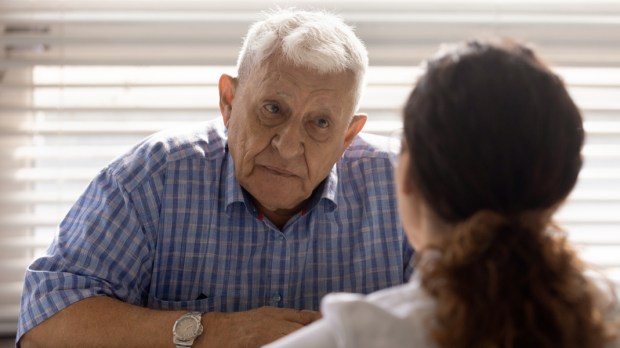“Get out of my sight! I want to end my days as I please, and that’s nobody else’s business!” These are the words shouted at me by an elderly man whom I had come to treat for depression at the nursing home.
Feeling disconcerted and helpless, I told Ms. Adelita, a nurse with many years of experience, what had happened.
“Allow me to take care of him on my own for a while,” she said with a kind smile.
I accepted, thinking about the persistent difficulties she was going to face. I was intrigued by the way she’d asked me to trust her.
After a few days, from a certain distance I observed that the patient began to calm down and communicate kindly, while Ms. Adelita reminded him clearly of his duties towards others.
What mysterious and effective therapy had caused such changes?
At that point I sat down to talk with the director of the nursing home, and she told me, “I know what you’re thinking, and I think I can explain to you the reason for the change in your patient.”
“Of course I’d like to hear the explanation,” I replied with great interest.
“Often the elderly are admitted with acute depression or difficult behaviors,” she said. “Then, they’re treated with different attitudes—some very helpful, others unhelpful. However, those of us who have years of experience have learned to distinguish between them, and so we do our best to correct what’s not working.”
Here are the different attitudes and their effects, as she explained them to me.
1Indifference
This is an efficient attitude where food, medicine, changes of sheets and other services are performed coldly and distantly. This gives the residents of the nursing home the impression that the employee is only carrying out these tasks as an obligation, part of a job they do for money but which deep down they don’t like at all.
Such treatment doesn’t offer human warmth and feels contemptuous, so the elderly people’s emotional vulnerability increases, and they become even more closed in on themselves.
2Pity
With this attitude, which reflects a certain sentimentality, a healthcare professional isn’t really getting involved in a personal relationship with the residents of the nursing home. Consequently, the residents generally sense that their care provider is offering them pity from a position of perceived superiority.
It makes them feel as if they’re being cared for by someone who doesn’t love them, who is acting with forced affection or because it makes them feel good about themselves. It’s as if they were being told that their condition is so miserable that they can only inspire pity.
This approach does nothing to relieve their loneliness or their need to be loved, nor is it useful for helping them regain their dignity. Thus, they remain closed in on themselves.
3Compassion
This is the best attitude for those who work at a home for the sick and elderly. It means responding to a vocation of attending the most needy in such a way that they make the personal sufferings of those they care for their own.
This allows them to identify emotionally with the people in their care, accompanying them in their feelings of joy, sorrow and anxiety, while they’re able to follow the normal course of their own lives as well.
This is possible because they manage to combine compassionate love with their own strength. I would call this a divine talent.
They love in such a way that they treat each elderly person individually in their own way, while being patient with them in their illnesses, bad temper and emotional ups and downs. They never fail to recognize their patients as people who can be understood and loved, but also, and very importantly… people from whom things can be demanded.
And it’s precisely when they respond to these demands, that from a place of vulnerability they begin to recover their self-esteem and a certain autonomy, allowing them to feel useful again. They may even provide a modest service to the institution, if nothing else than the most valuable thing they can give to their peers … their loving company.
After this conversation I was convinced that, apart from any scientific knowledge about health and psychology, I had just received the most profound lesson on the truth of human beings, which could only come from a compassionate heart.
It’s the truth that each human person, according to God’s plans, is always an unfinished project until the last day of his or her life.


